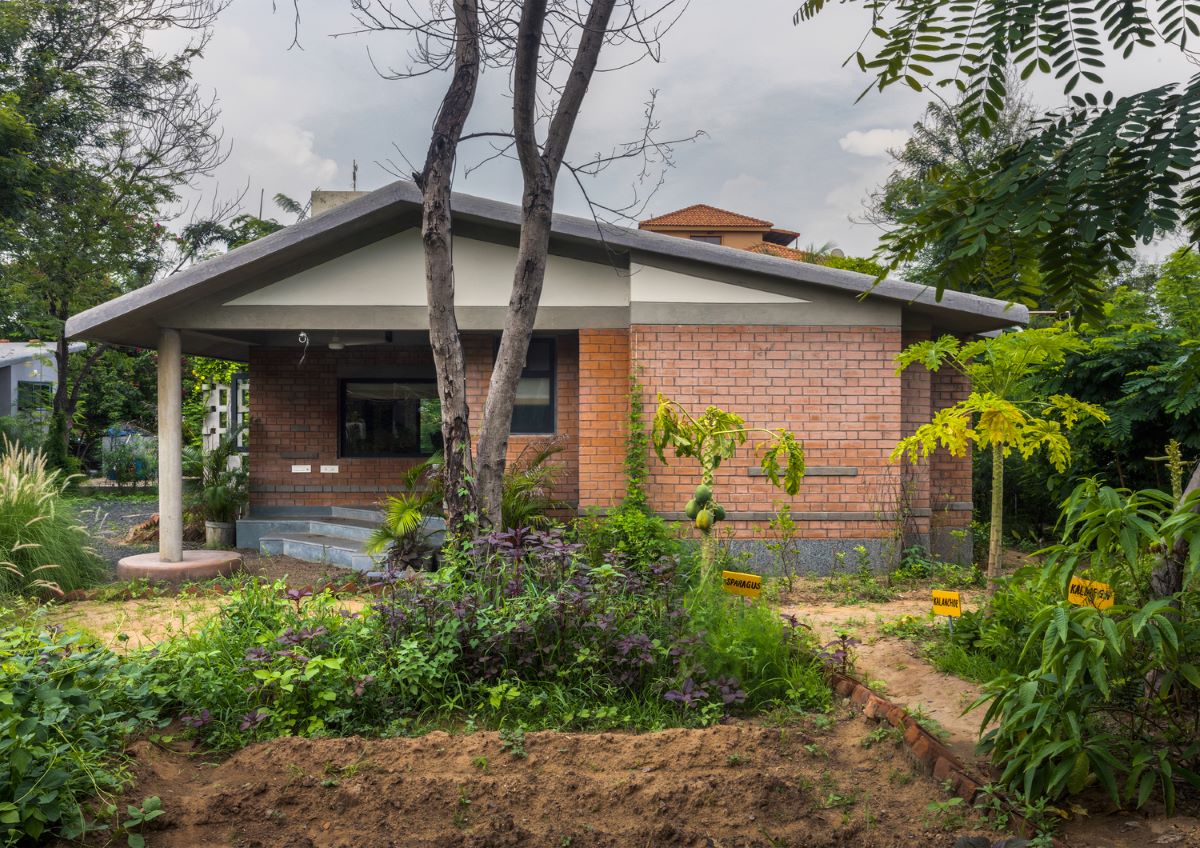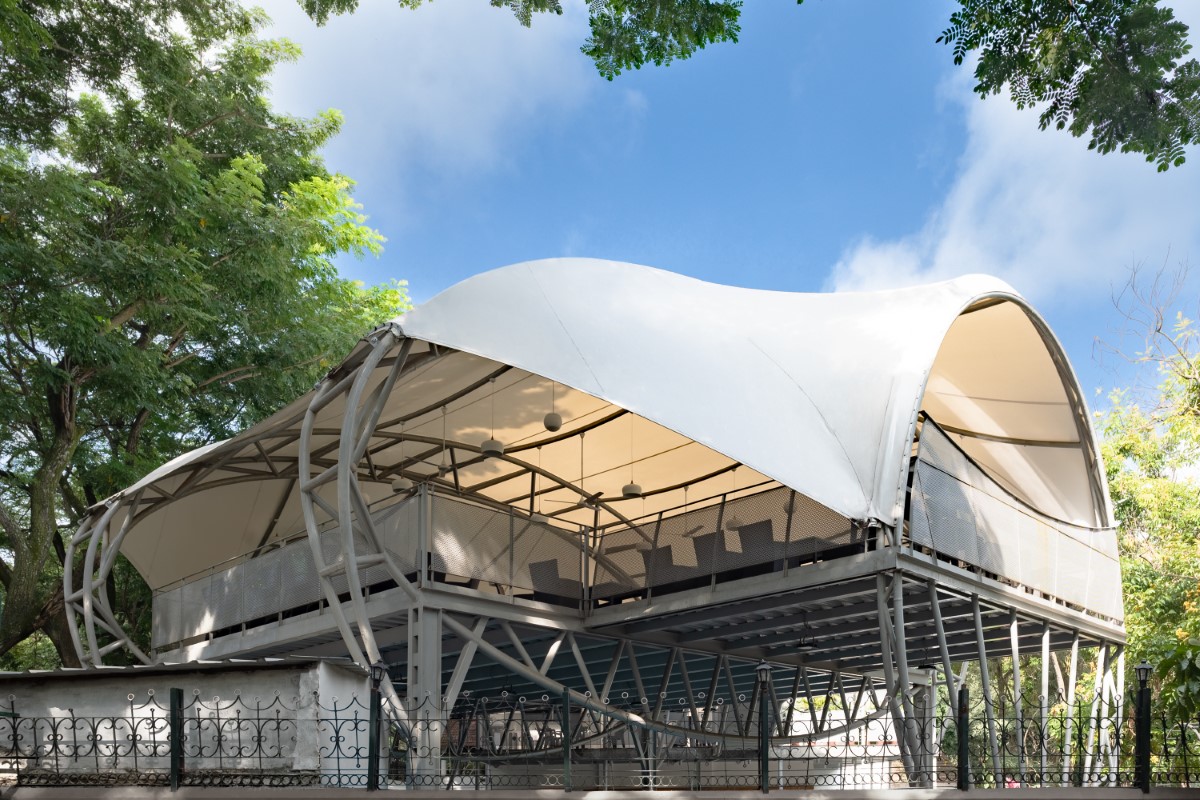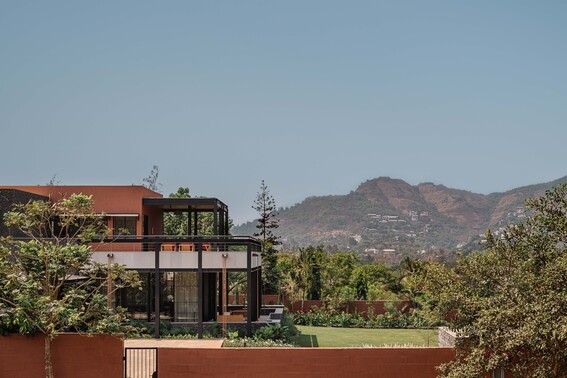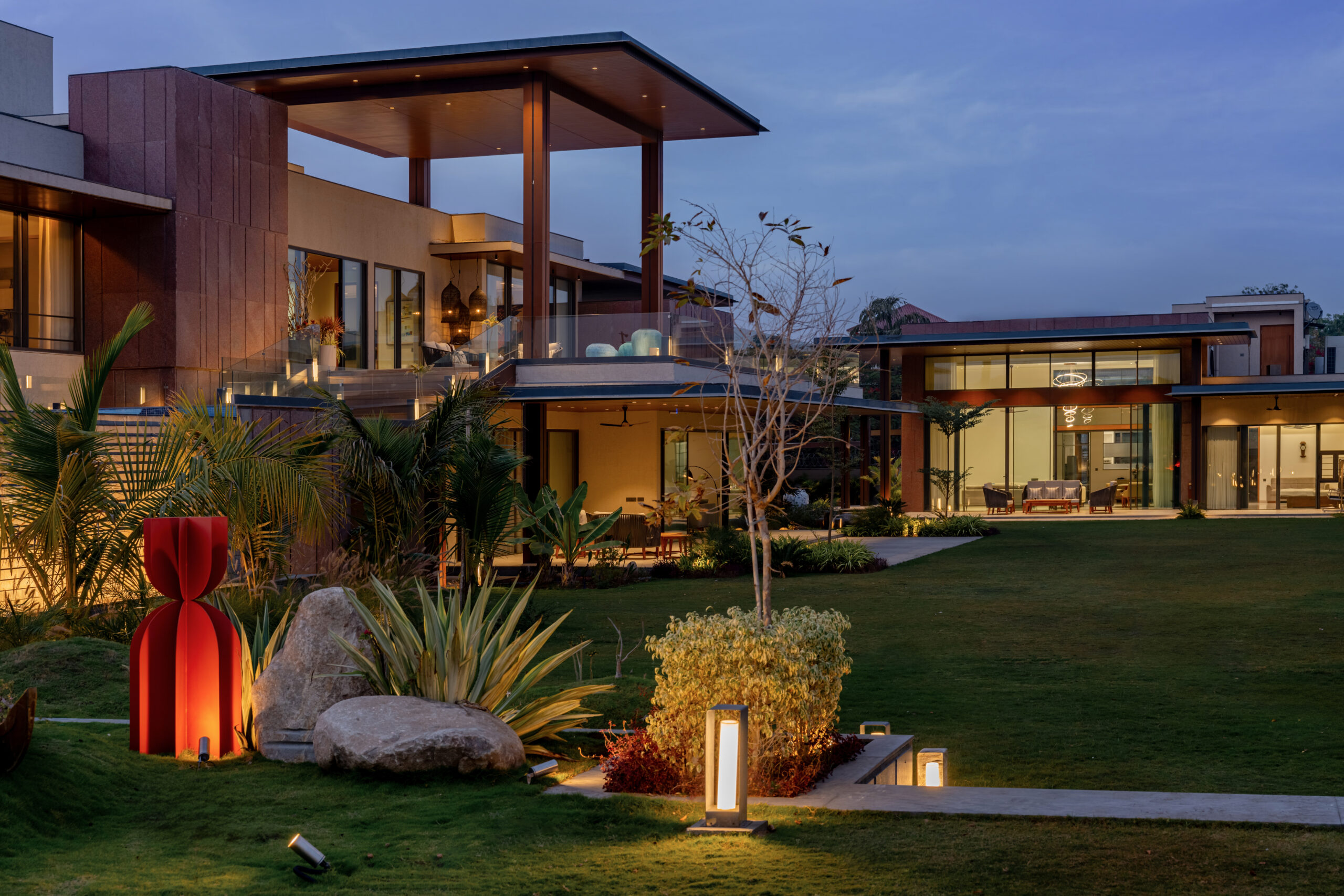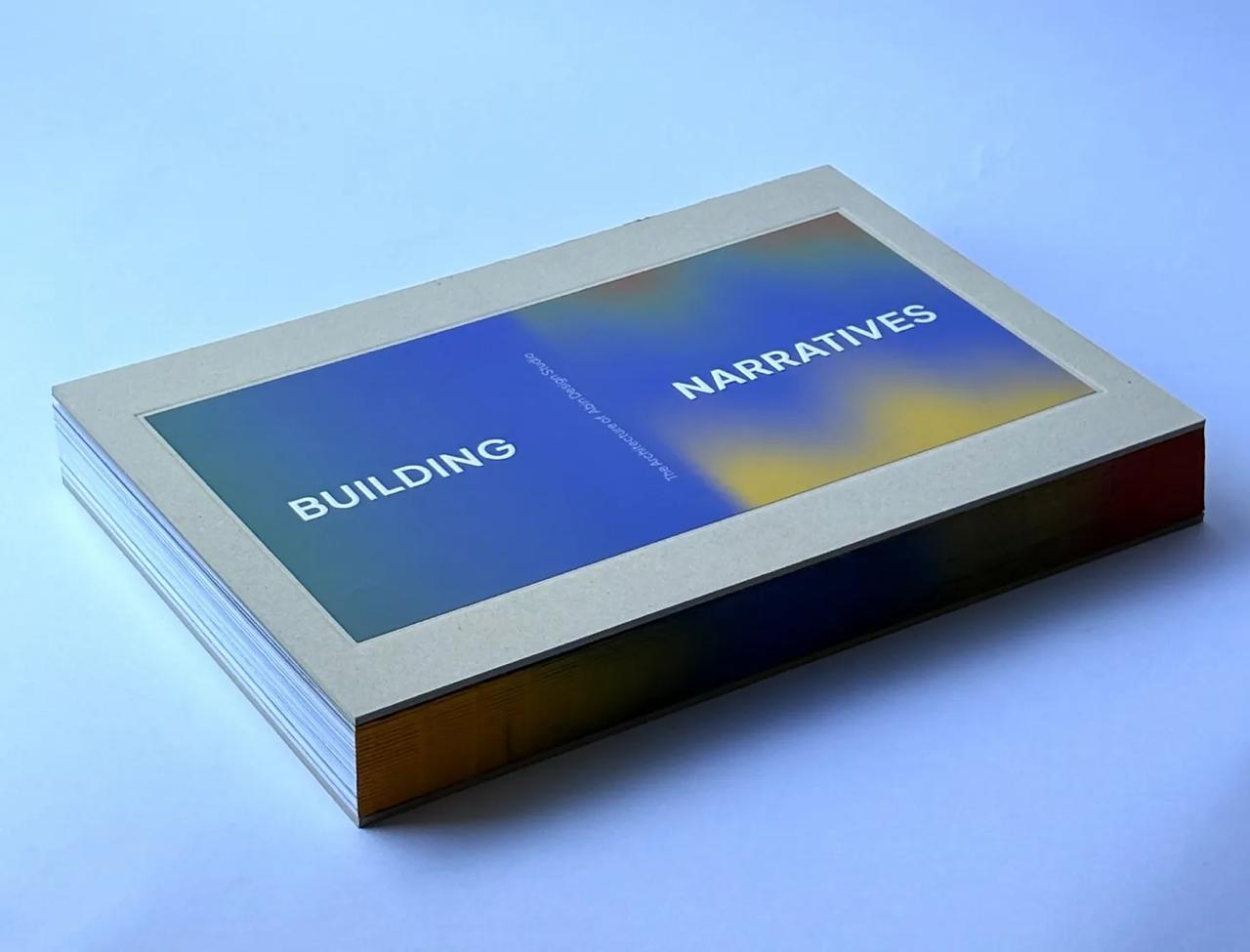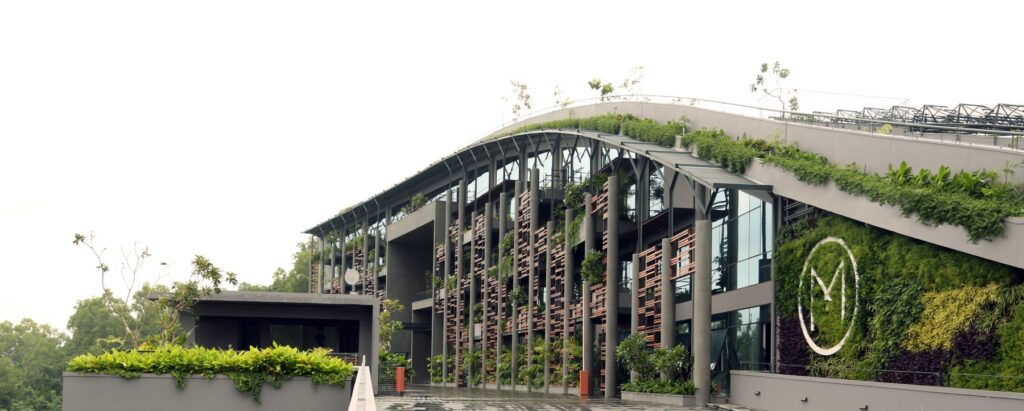
A steep, sloping site facing the west presented a unique challenge for the design of the Malabar Headquarters at Calicut, by Stapati, in the tropical context of Kerala, India. The design is resolved as a series of levels along the contours, which reduces the intervention on site to a minimum.
The lower four levels accommodate the parking and service areas, with an interesting pattern of terracotta jaalis and greenery defining the façade. Office spaces rise up from the large landscaped podium above this, which serves as the main entry level. The podium level is accessed through an interestingly designed bridge and has thoughtfully done landscaping, which helps create a sense of arrival.
To take advantage of the wonderful views all around, the office areas are designed as transparent open plans and rise up four floors above the podium. Responding to the sloping site, the office spaces are resolved as two separate blocks with a green landscape spine in between. Strategically placed balconies with large trees and vegetation on the western façade cut out the intense sun, creating a green buffer. They also serve as gardens in the sky, providing spill-out spaces that can be accessed from various floor levels.
Intermittently placed wooden trellises allow climbers to grow, which helps in cutting out the harsh sunlight, along with the double-glazed units on the western façade. The roof is designed as a landscaped gathering space that slopes all the way down to the ground and has amphitheatres, lounges, pavilions, and plenty of vegetation, serving as a space to get together and unwind. The green roof slopes down to the ground in the south to reduce the intensity of the southern sun and also acts as insulation for the office spaces below. There are cut-outs in between, which allow the employees to move out onto the green roof.
The interiors are an expression of a contemporary design aesthetic with exposed materials like polished concrete flooring and cement board finishes, which contrast with the sleekness of glass and mild steel. Innovatively designed furniture and artworks accentuate the vibrancy of the space. A conscious decision was taken to avoid using false ceilings so as to reduce material usage. The services are thus exposed and are completely finished in black above the eye level, creating a raw industrial aesthetic in the interiors, which is contrasted with the bright colours of the furniture and the artwork.
Natural vegetation comes into the interiors through spill-out balconies and the central landscaped spine with dense greenery, providing opportunities for social interactions and enhancing the psychological well-being of the employees. The central landscape has a solar screen roof on top, which helps in meeting the energy demands of the building. Rainwater collected on the roof and other surfaces is channelized to percolation pits and helps in recharging the groundwater. The inherent honesty in the usage of materials along with the contextually relevant design helps in creating a highly sustainable building, one that is integrally connected to nature.
Gallery:
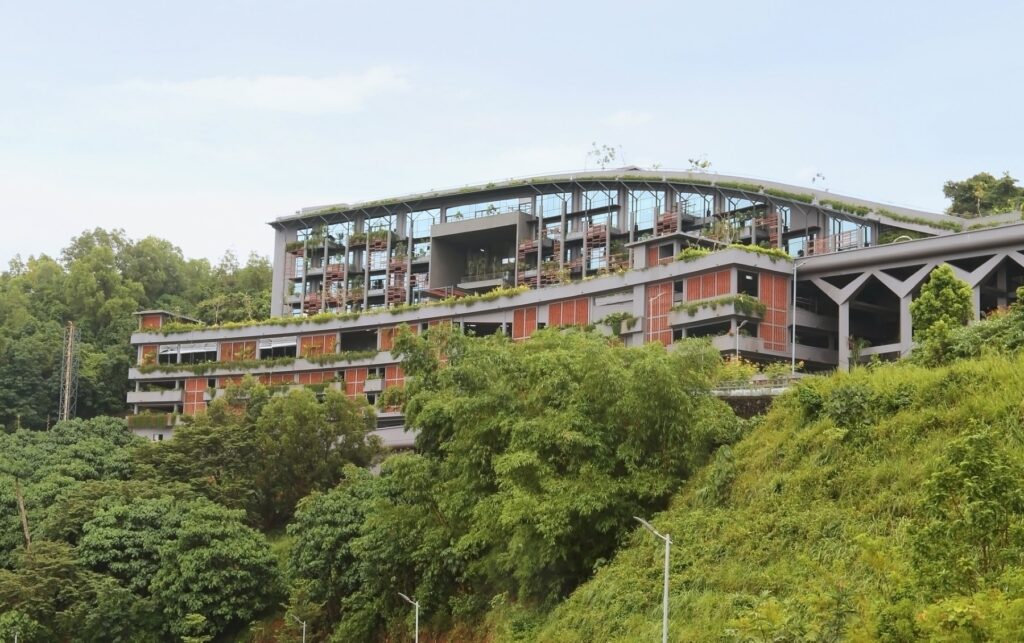
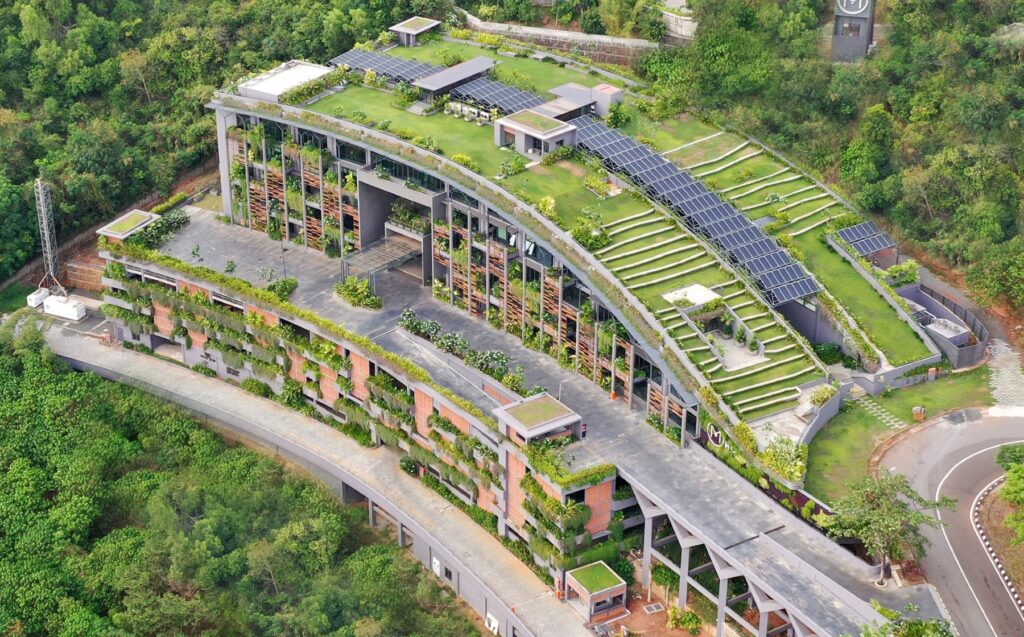
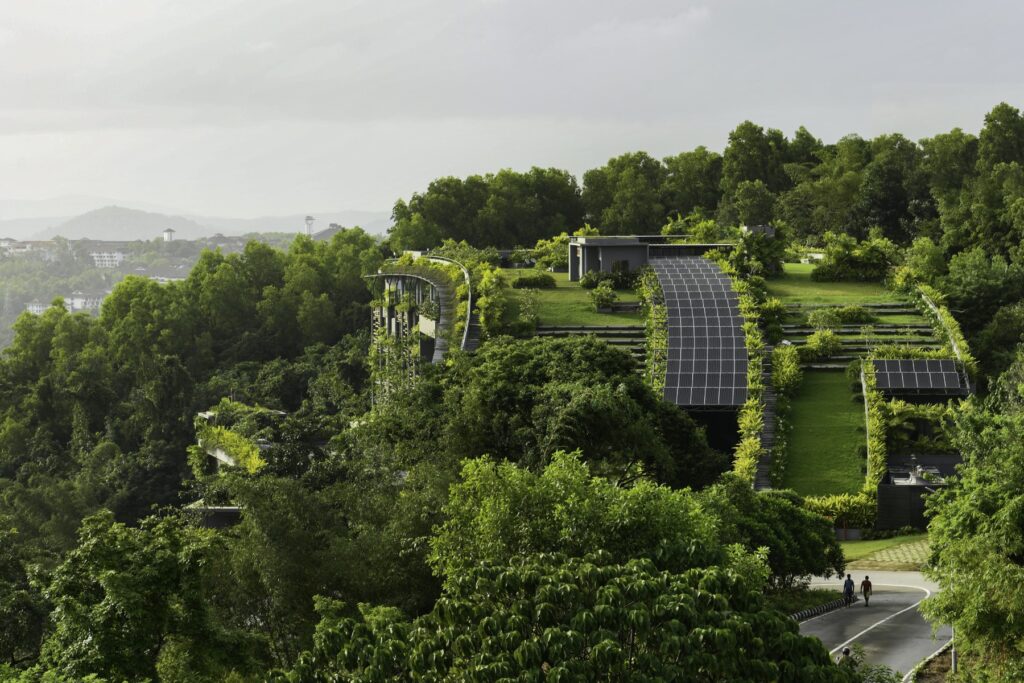

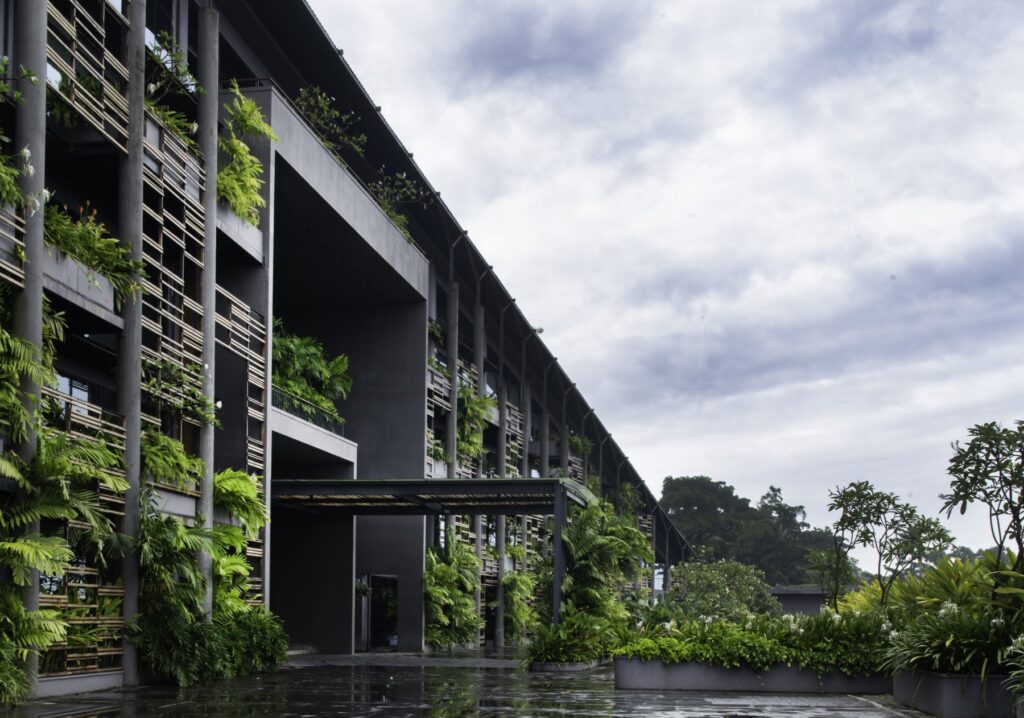
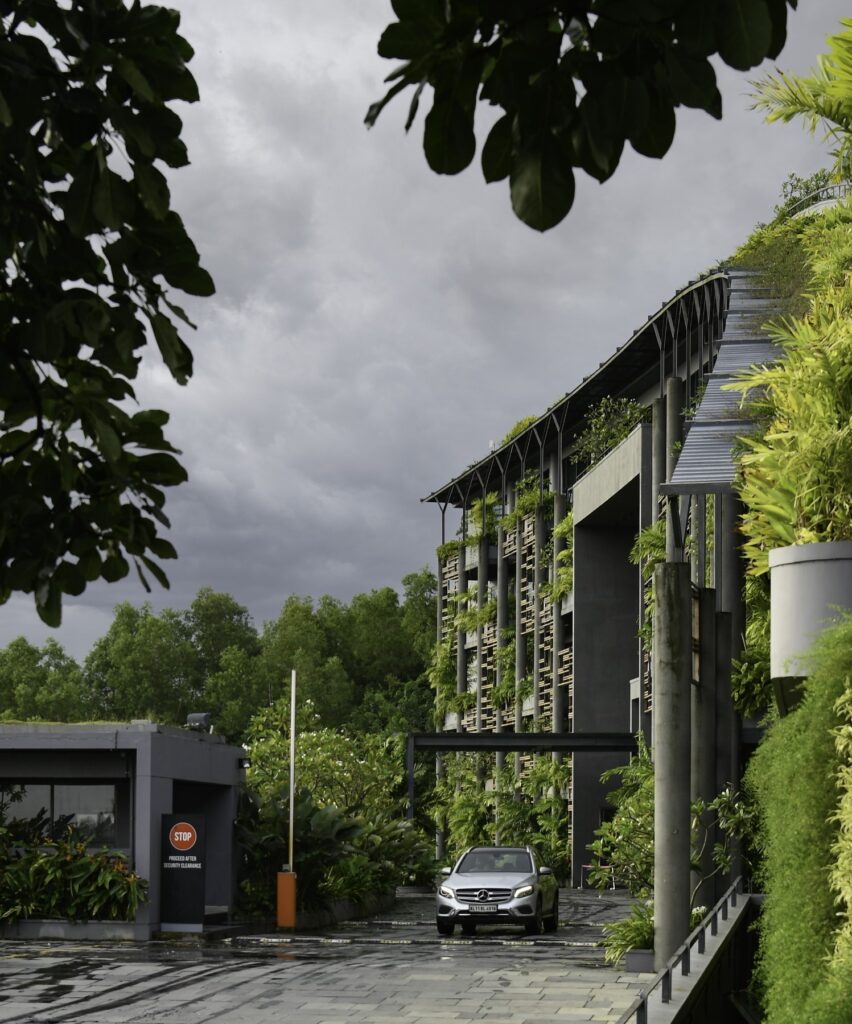
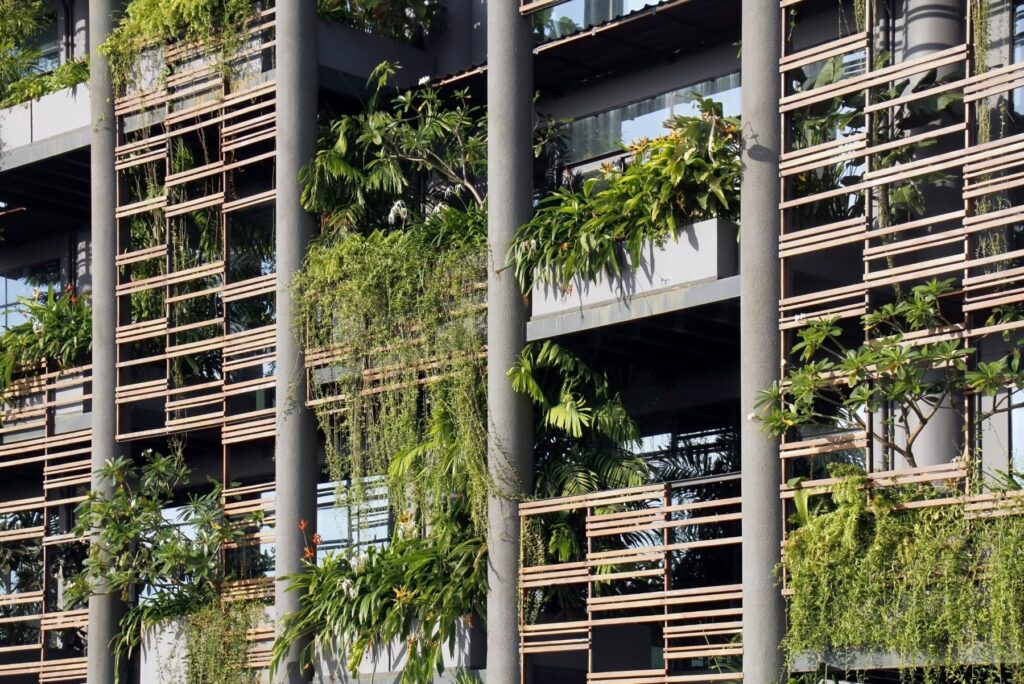
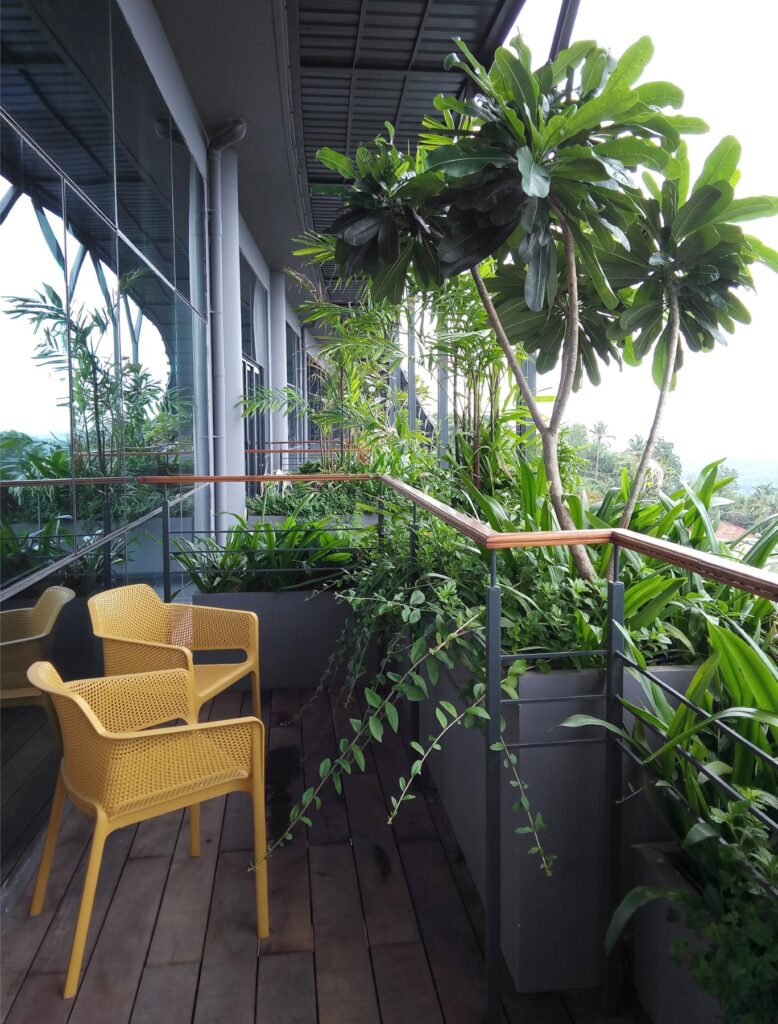
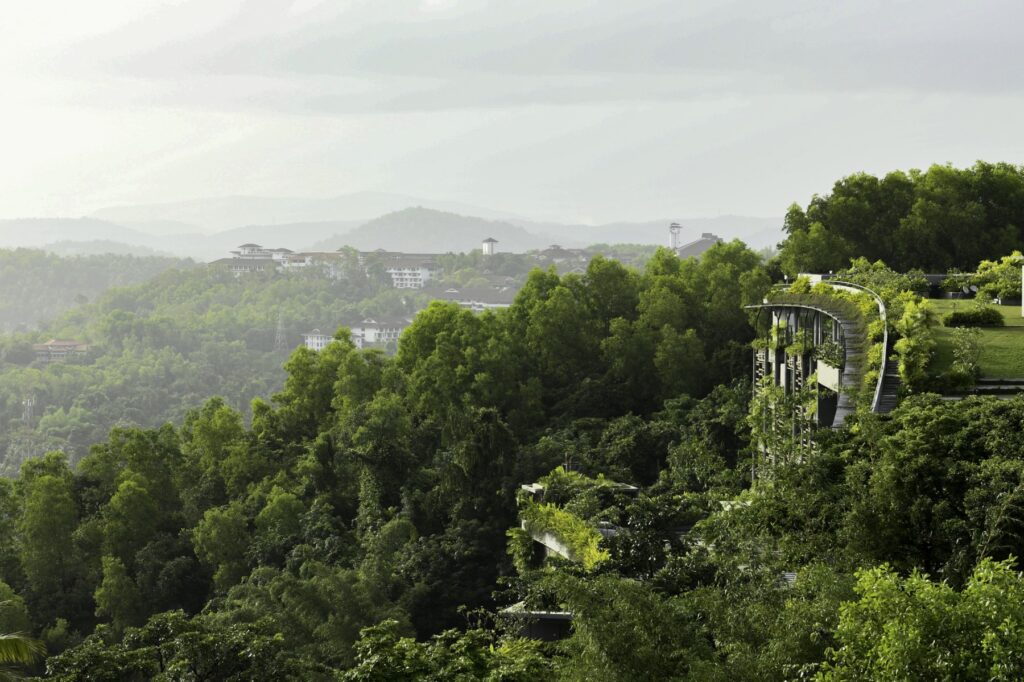
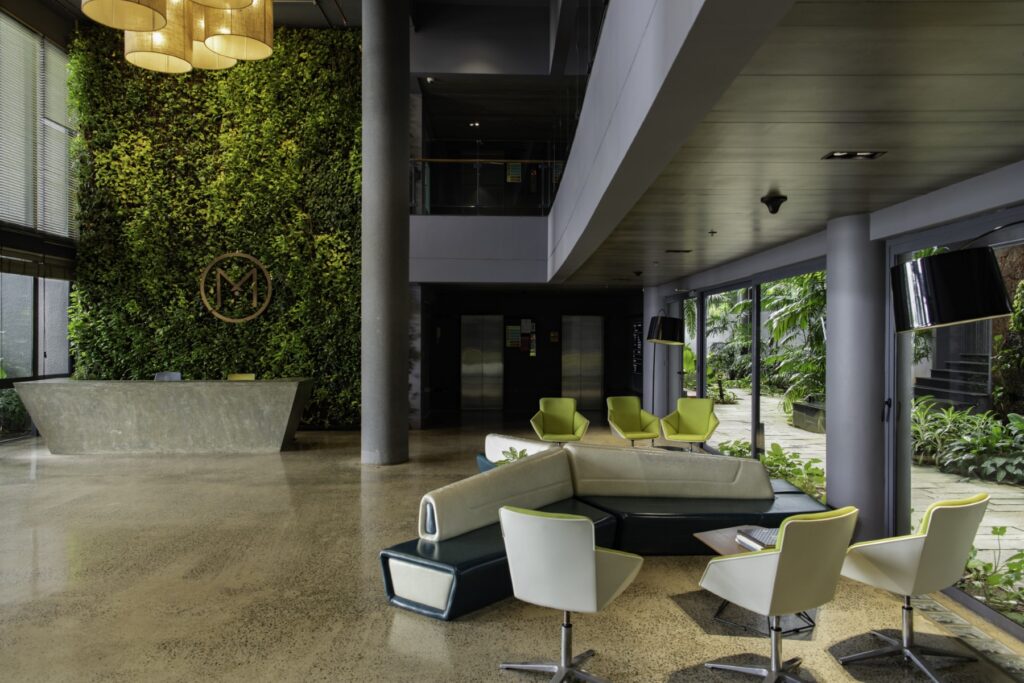
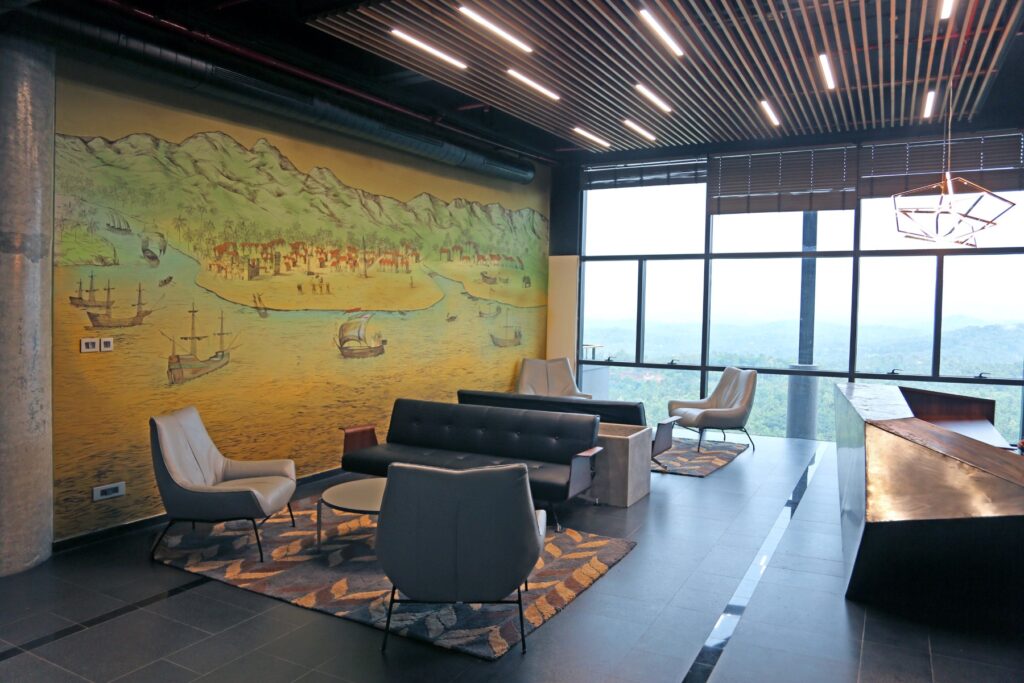
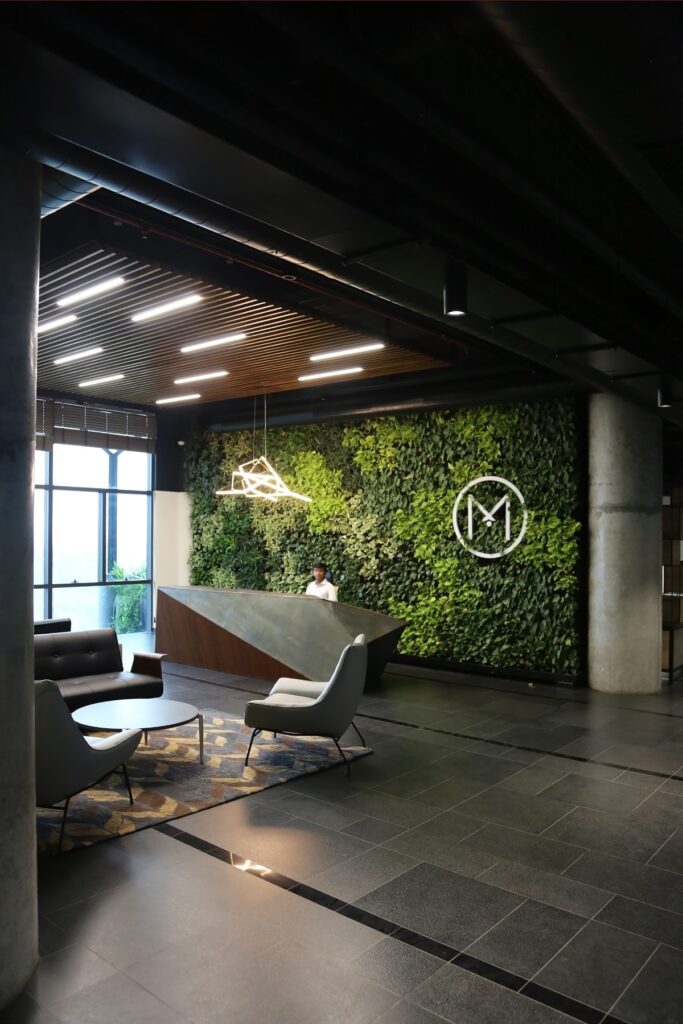
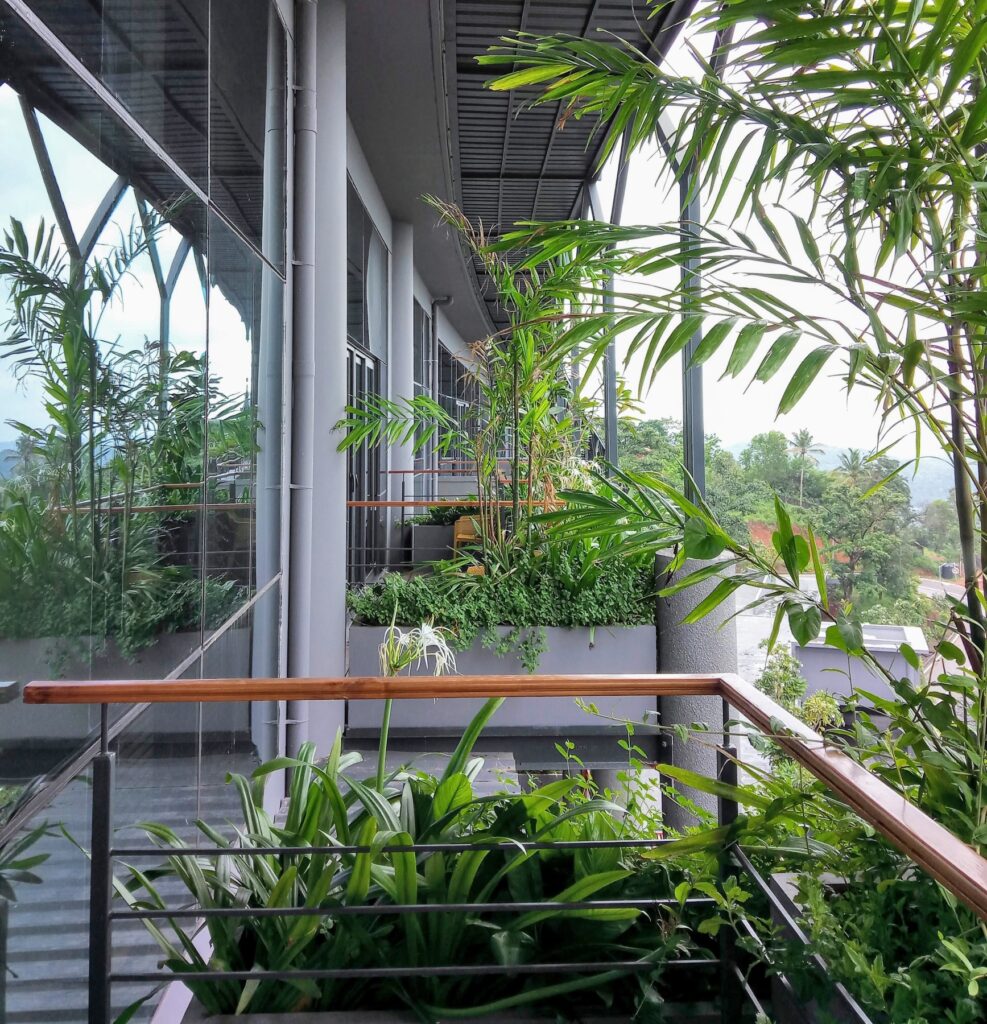
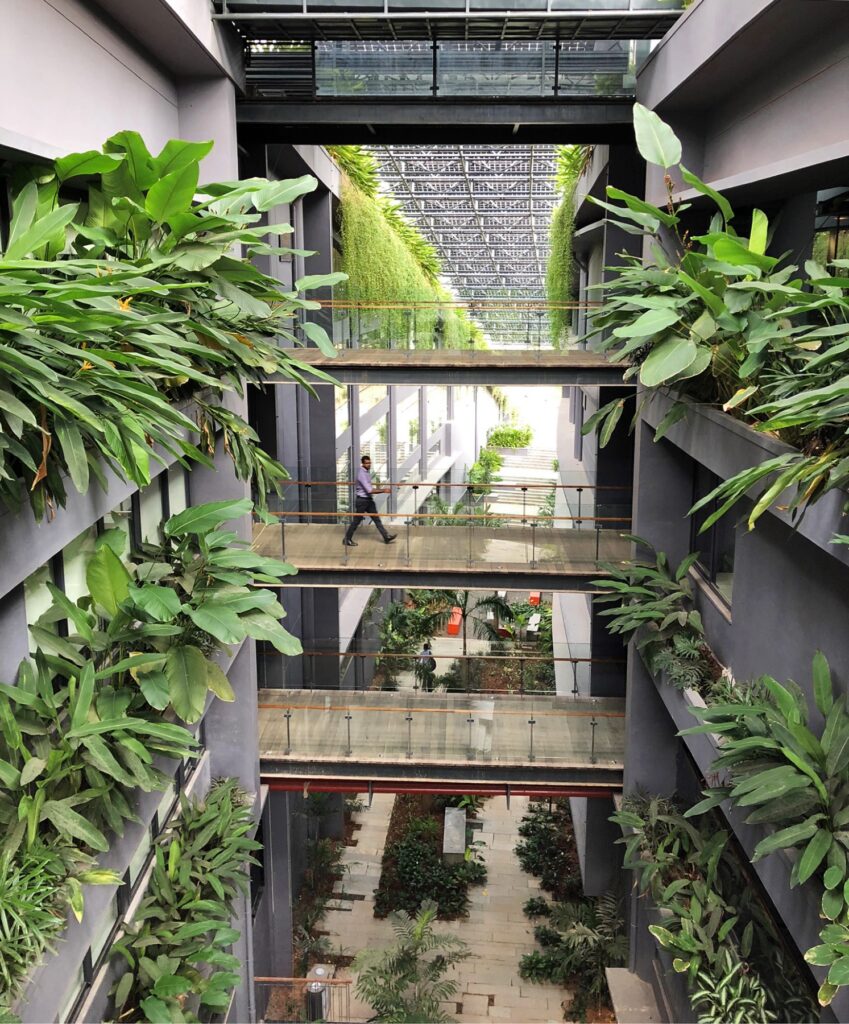
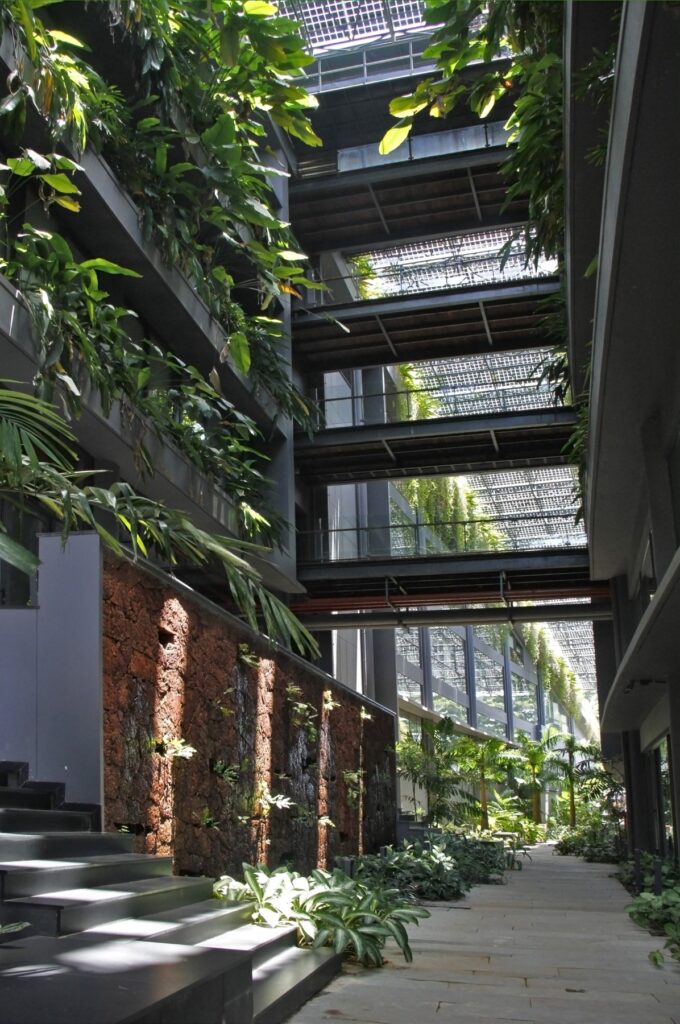
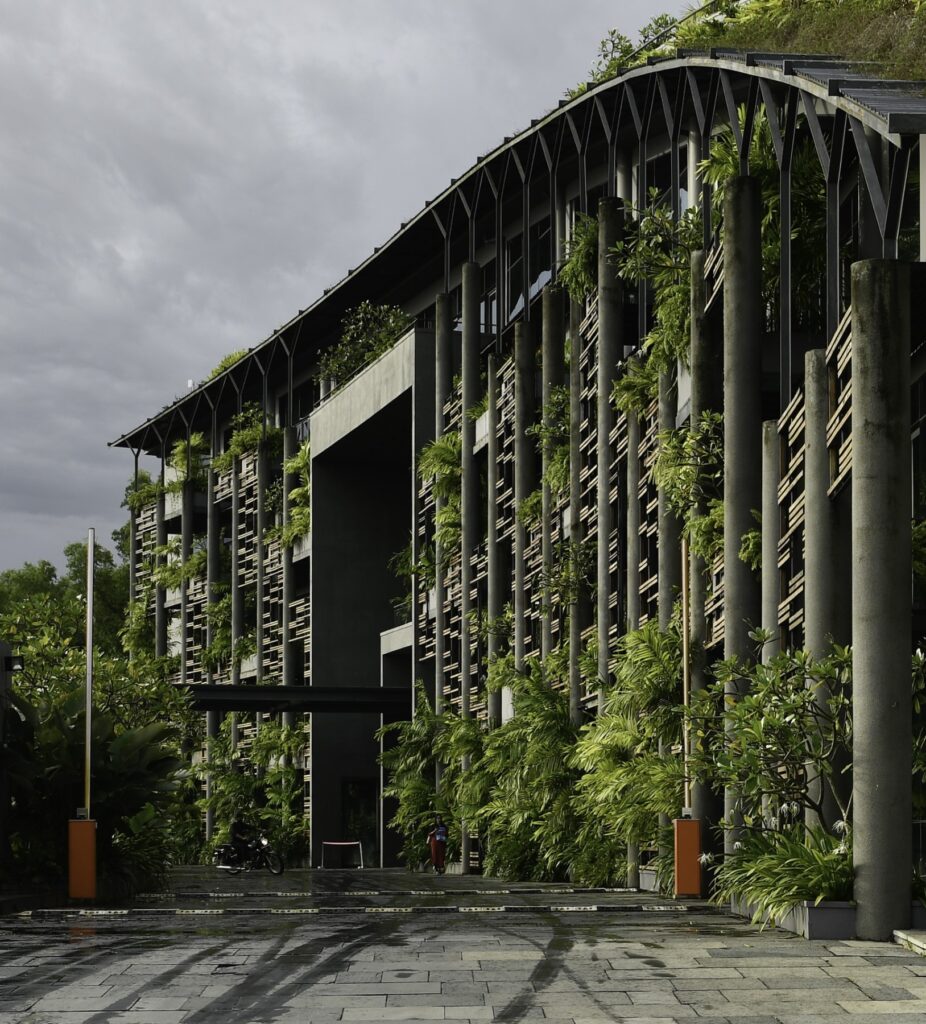
Drawings:
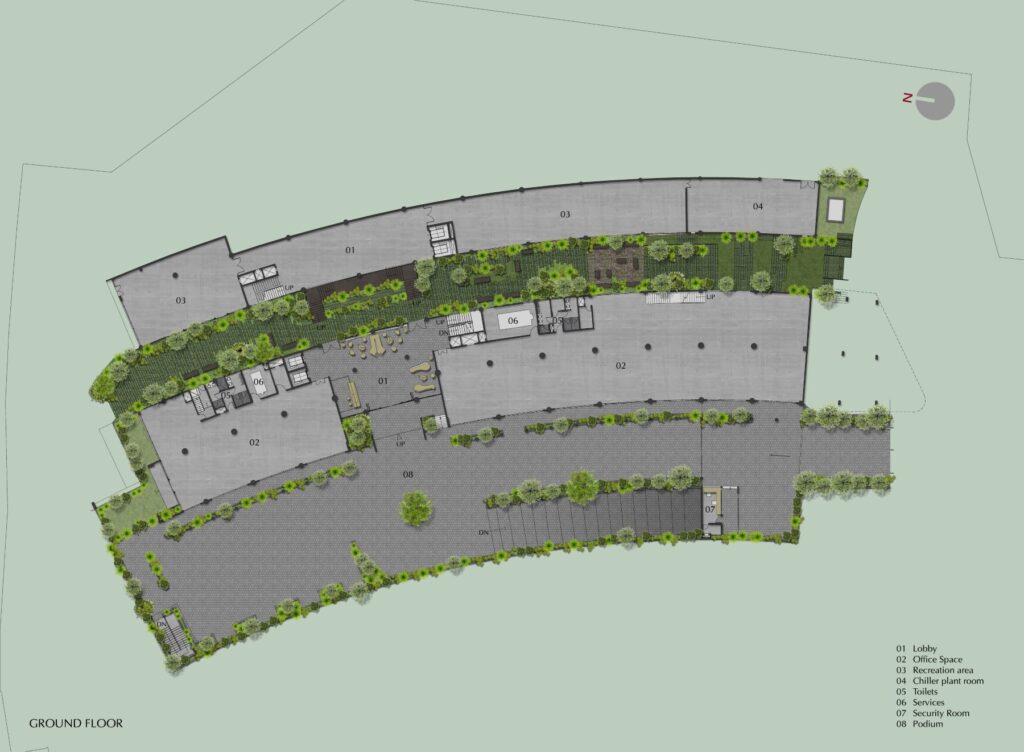
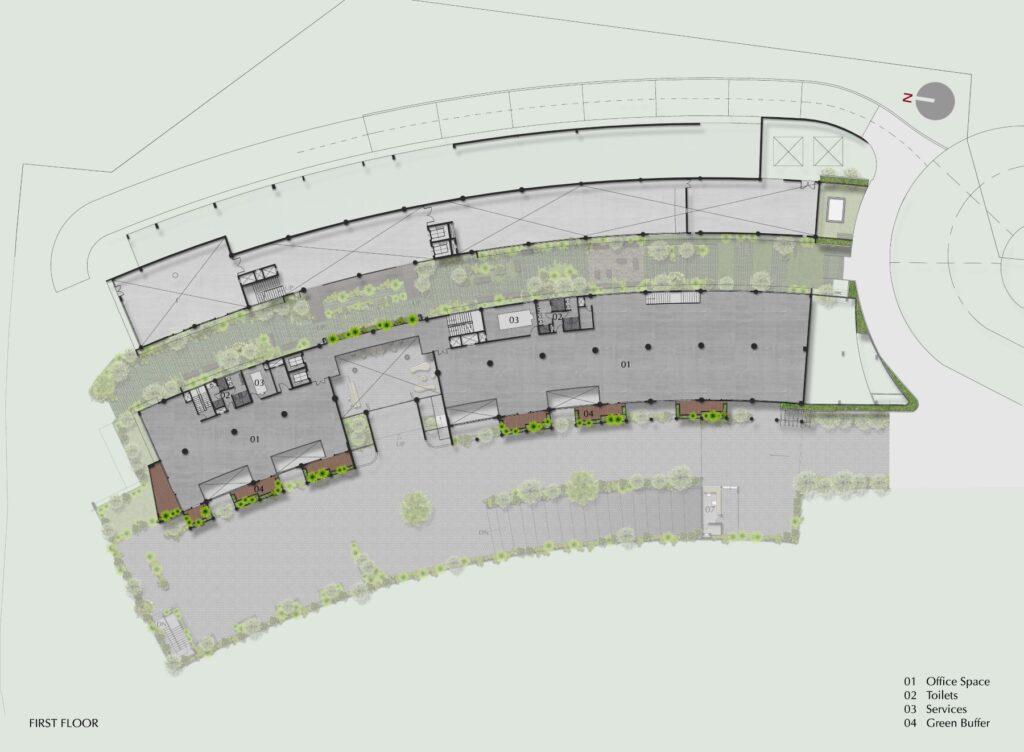
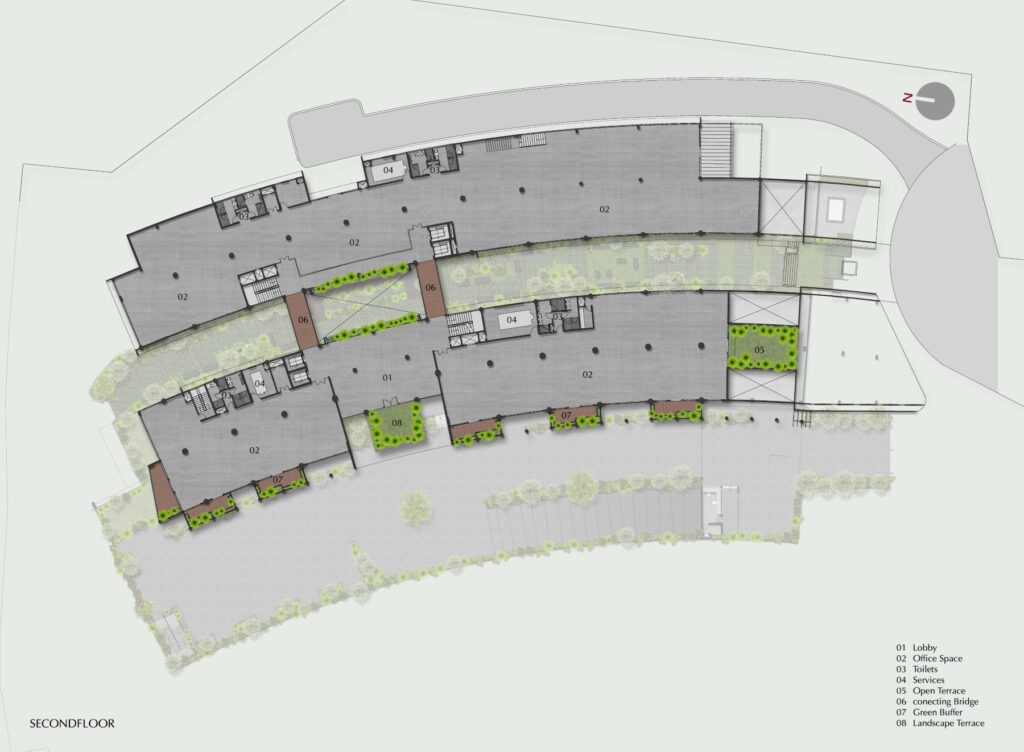
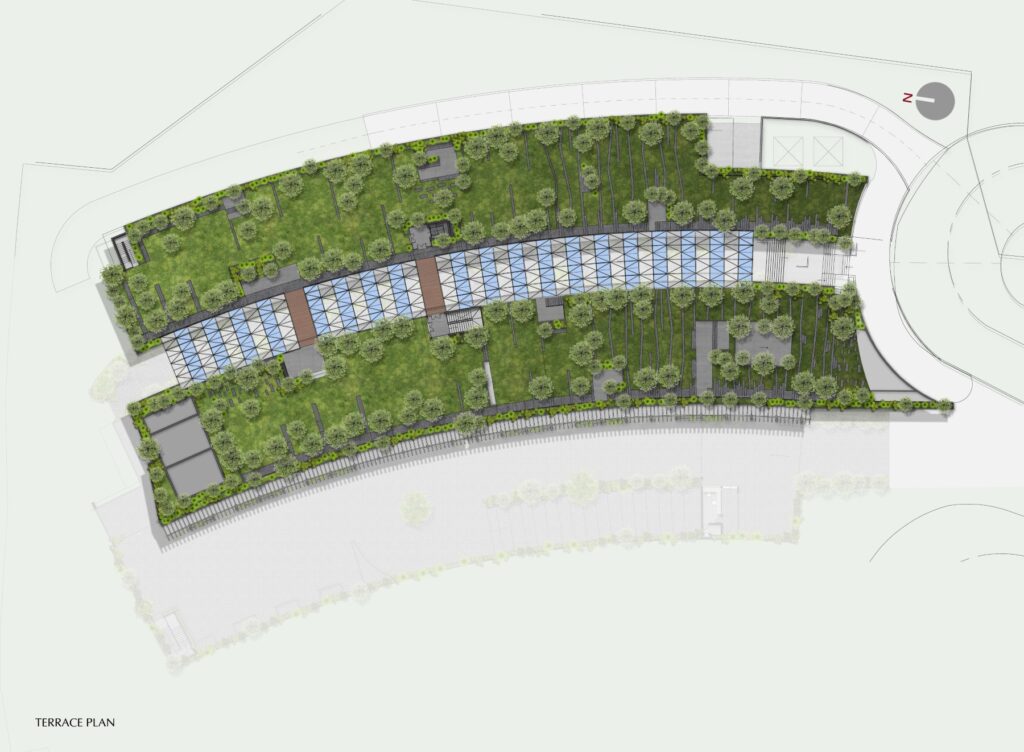
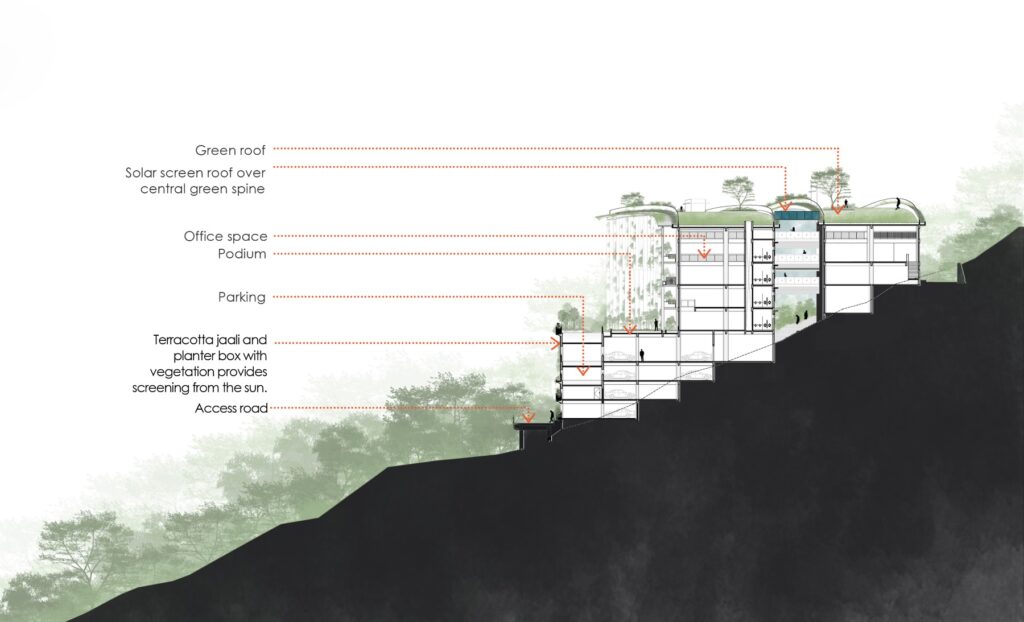
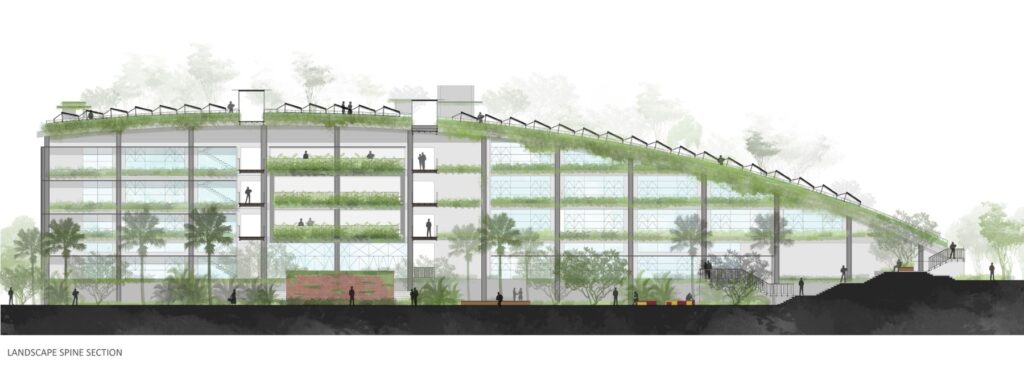
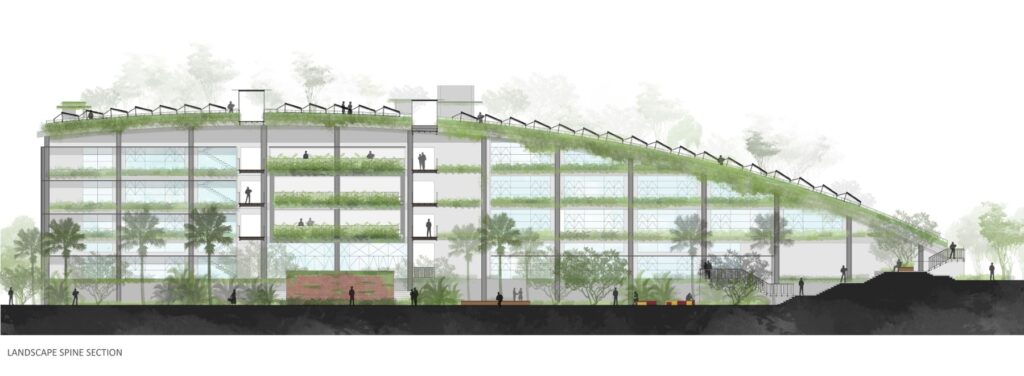
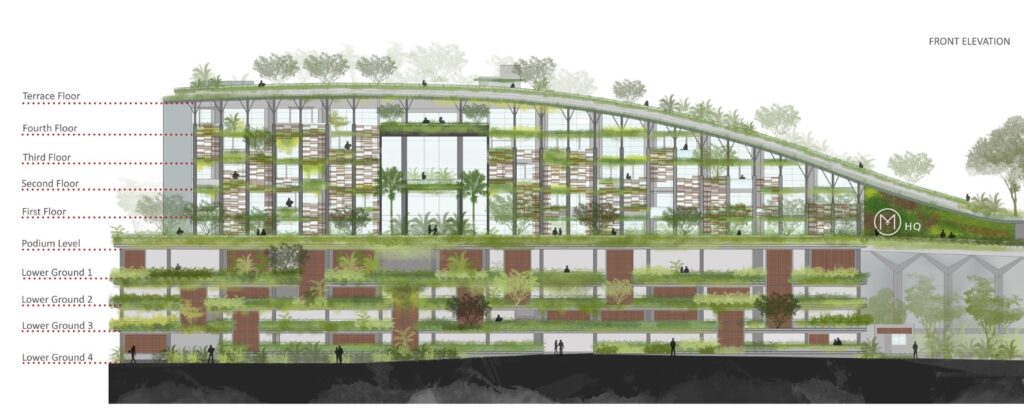
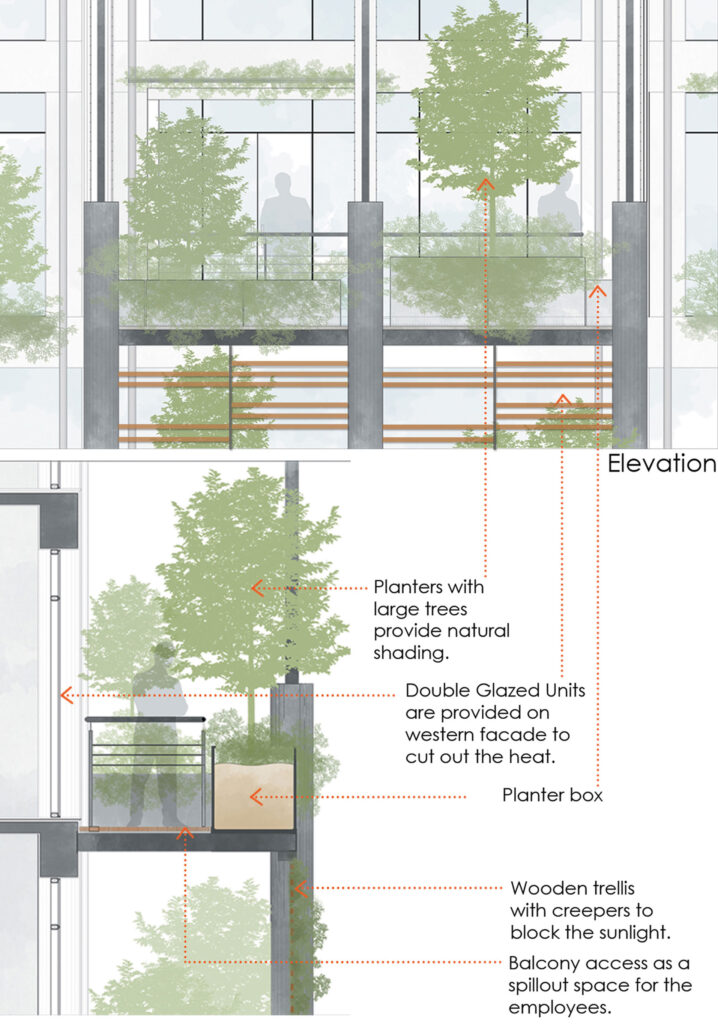
Project Details:
Name: Malabar Headquarters
Location: Calicut, Kerala, India
Status: Completed (2018)
Area: 2 lakh sq. ft.
Designed by: Stapati
Design Team: Ar. Tony Joseph, Ar. Mohandas, Ar. Poonam Noufal, Ar. Sujith G.S., Ar. Kiran, Rajeesh, Likesh K.P.
Photographs: Tims Jose Kunnath, Sujith G.S. , Sahil
Description: Stapati


